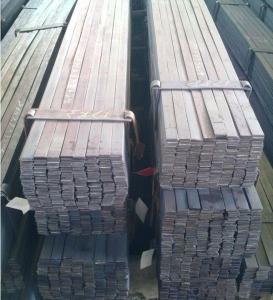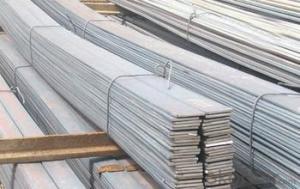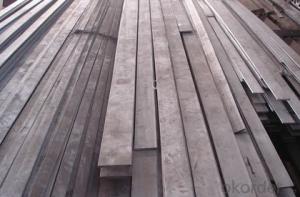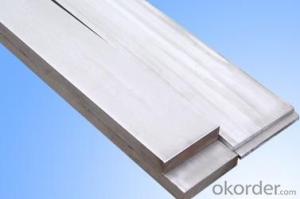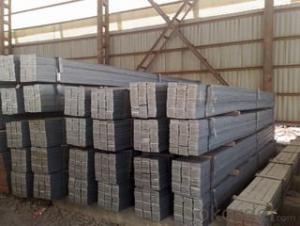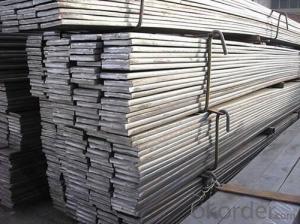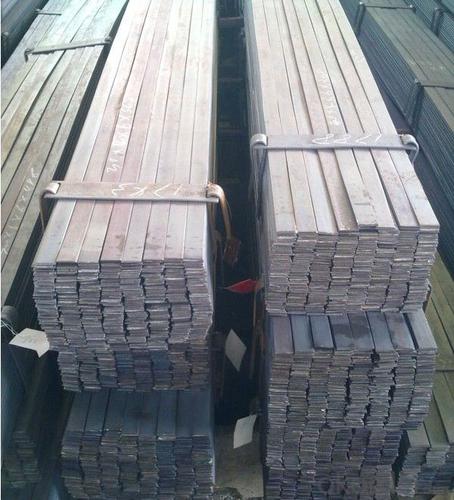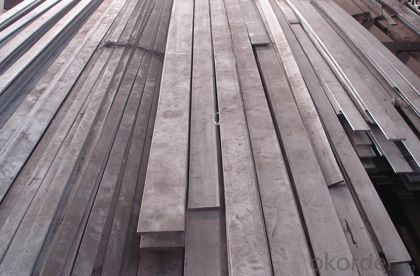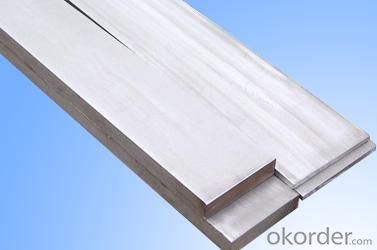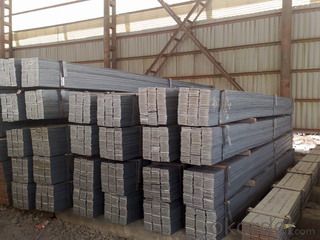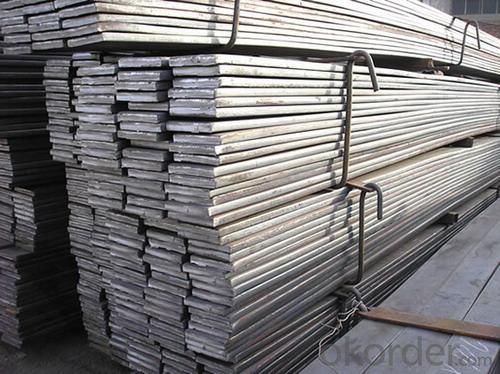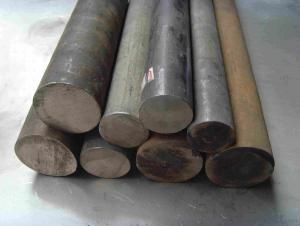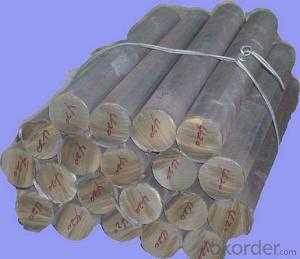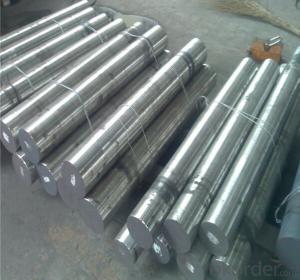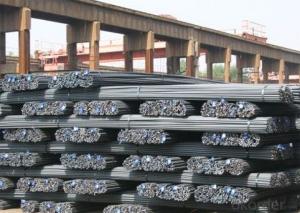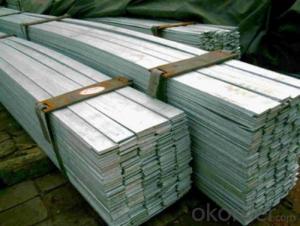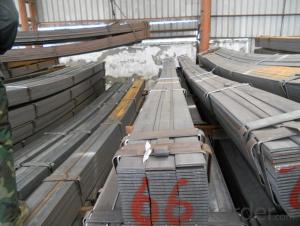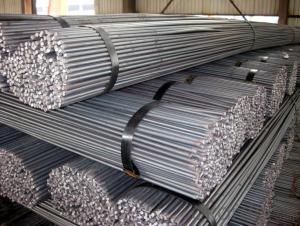Hot Rolled Grade ASTM A36_S235JR_SS400 Steel Flat Bar
- Loading Port:
- Tianjin
- Payment Terms:
- TT OR LC
- Min Order Qty:
- 3 m.t.
- Supply Capability:
- 10000 m.t./month
OKorder Service Pledge
OKorder Financial Service
You Might Also Like
Specification
Hot Rolled Grade ASTM A36_S235JR_SS400 Steel Flat Bar
Details of Hot Rolled Grade ASTM A36_S235JR_SS400 Steel Flat Bar
Name | Hot Rolled Grade ASTM A36_S235JR_SS400 Steel Flat Bar |
Shape | Flat Bar |
Standard | GB/ASTM/SAE/AISI/DIN/JIS/EN/BS |
Surface Treatment: | Black/Peeling/Polished/Machined |
Delivery Condition: | Hot Rolled or Forged/Peeled or Black Surface |
Test | SGS/UT 100% Elements Testing |
Certificate: | ISO/Mill Certificate |
Service: | 24 hours online service / |
more than 20 years trading and manufacture | |
Quality Assurance: | the third party inspection, such as SGS, BV, TUV…etc. is acceptable |
Packaging Details: | Seaworthy Packaging or as per customer's packing instruction |
steel flat bar grade | A36, Q235, Q195, SS400, St37-2 |
steel flat bar standard | GB, ASTM, AISI, EN, JIS |
steel flat bar thickness | 1.8mm-17.75mm |
steel flat bar width | 10mm-870mm |
steel flat bar length | 6m, 9m, 12m or as customer requirement |
steel flat bar technique | Slitting hot rolled steel coil |
Specification of Hot Rolled Grade ASTM A36_S235JR_SS400 Steel Flat Bar
Width | Thickness | Length | Theoretical Weight |
(mm) | (mm) | (m) | (kg/m) |
20 | 2 | 6/9/12 | 0.31 |
20 | 2.5 | 6/9/12 | 0.39 |
20 | 2.75 | 6/9/12 | 0.43 |
25 | 2.5 | 6/9/12 | 0.49 |
25 | 3.75 | 6/9/12 | 0.74 |
30 | 2.5 | 6/9/12 | 0.59 |
30 | 3.5 | 6/9/12 | 0.82 |
30 | 9.75 | 6/9/12 | 2.3 |
40 | 3.5 | 6/9/12 | 1.1 |
40 | 4.75 | 6/9/12 | 1.5 |
40 | 11.75 | 6/9/12 | 3.69 |
50 | 2.75 | 6/9/12 | 1.08 |
50 | 4.5 | 6/9/12 | 1.77 |
50 | 9.75 | 6/9/12 | 3.83 |
60 | 5.5 | 6/9/12 | 2.6 |
60 | 7.5 | 6/9/12 | 3.53 |
60 | 11.5 | 6/9/12 | 5.42 |
80 | 5.5 | 6/9/12 | 3.45 |
80 | 7.5 | 6/9/12 | 4.71 |
80 | 11.75 | 6/9/12 | 7.38 |
100 | 3.25 | 6/9/12 | 2.55 |
100 | 4.75 | 6/9/12 | 3.73 |
100 | 7.5 | 6/9/12 | 5.89 |
120 | 9.75 | 6/9/12 | 9.18 |
120 | 11.75 | 6/9/12 | 11.07 |
150 | 9.75 | 6/9/12 | 11.48 |
150 | 11.5 | 6/9/12 | 13.54 |
150 | 13.5 | 6/9/12 | 15.9 |
160 | 11.75 | 6/9/12 | 14.76 |
200 | 9.5 | 6/9/12 | 14.92 |
250 | 5.75 | 6/9/12 | 11.28 |
340 | 7.75 | 6/9/12 | 20.68 |
CNBM Introduction of Hot Rolled Grade ASTM A36_S235JR_SS400 Steel Flat Bar Supplier
CNBM International Corporation is the most import and export platform of CNBM group(China National Building Material Group Corporation) ,which is a state-owned enterprise, ranked in 270th of Fortune Global 500 in 2015.
With its advantages, CNBM International are mainly concentrate on Cement, Glass, Iron and Steel, Ceramics industries and devotes herself for supplying high quality series of refractories as well as technical consultancies and logistics solution.
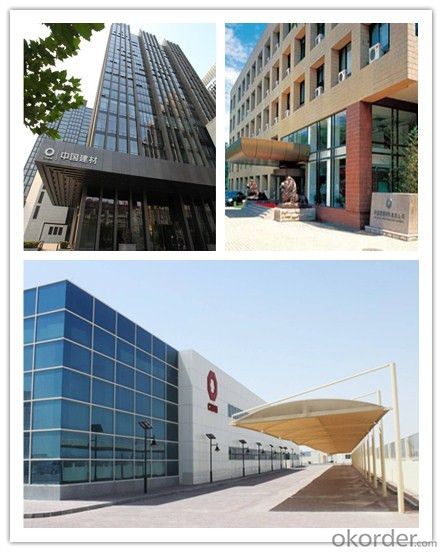
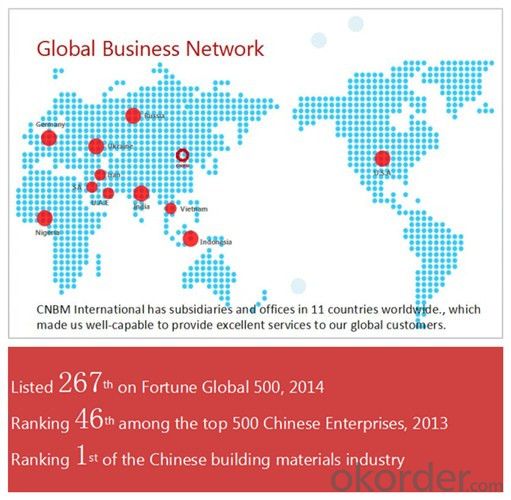
After-sale service |
|
Advantages
|
|
Packaging & Delivery Hot Rolled Grade ASTM A36_S235JR_SS400 Steel Flat Bar Supplier
Packaging Detail | Sea worthy packing /as per customer's packing instruction |
Delivery Detail | 15 ~ 40 days after receiving the deposit |
Products Show
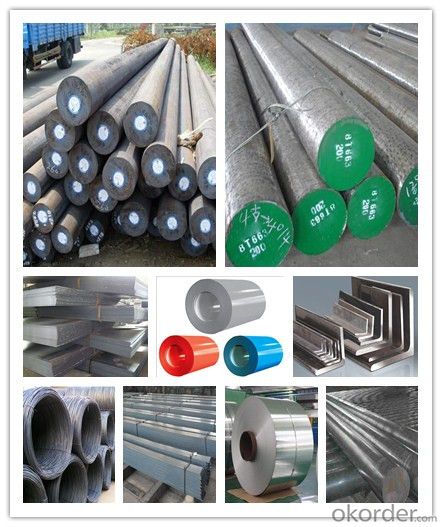
FAQ:
Are you a trading company or manufacturer? | Manufacturer |
What’s the MOQ? | 3 metric ton |
What’s your delivery time? | 15-35 days after downpayment received |
Do you Accept OEM service? | Yes |
what’s your delivery terms? | FOB/CFR/CIF |
What's the Payment Terms? | 30% as deposit,70% before shipment by T/T |
Western Union acceptable for small amount. | |
L/C acceptable for large amount. | |
Scrow ,Paybal,Alipay are also ok | |
Why choose us? | Chose happens because of quality, then price, We can give you both. Additionally, we can also offer professional products inquiry, products knowledge train (for agents), smooth goods delivery, excellent customer solution proposals. |
What's your available port of Shipment? | Main Port, China |
What’s your featured services? | Our service formula: good quality+ good price+ good service=customer's trust
|
Where are your Market? | Covering more than 160 countries in the world |
- Q: Can special steel be used in the oil and gas industry?
- Yes, special steel can be used in the oil and gas industry. It is often utilized in the construction of pipelines, drilling equipment, and offshore platforms due to its high strength, corrosion resistance, and ability to withstand extreme temperatures and pressures.
- Q: How does special steel contribute to the telecommunications industry?
- The telecommunications industry relies heavily on special steel, which plays a vital role by offering the necessary strength, durability, and resistance to various environmental factors. Special steel finds its primary use in the manufacturing of transmission towers, antenna systems, and other supporting structures in telecommunications. For instance, transmission towers serve as the backbone of the telecommunications network, requiring the ability to withstand extreme weather conditions like strong winds, heavy precipitation, and even earthquakes. Special steel ensures the stability and functionality of these towers under such challenging circumstances due to its high tensile strength and resistance to corrosion. Furthermore, antenna systems also benefit from the use of special steel. Whether it's for satellite communication or wireless networks, antennas require materials with excellent electrical conductivity and low signal loss. Special steel alloys meet these requirements, enabling efficient signal transmission and reception. Moreover, special steel offers the advantage of being lightweight while maintaining its strength, making it ideal for constructing structures that need to be installed at significant heights, such as telecommunication towers. By utilizing special steel, telecommunications companies can achieve cost savings in both construction and transportation. Additionally, the durability and resistance to corrosion of special steel make it ideal for long-term use in the telecommunications industry. These properties contribute to the extended lifespan of structures and equipment made from special steel, reducing maintenance and replacement costs. The longevity of special steel also enhances the overall reliability and stability of the telecommunications network. In summary, special steel's unique properties, including its strength, durability, resistance to environmental factors, and efficient signal transmission capabilities, make it an essential material in the telecommunications industry. By providing support and reliability, special steel significantly contributes to the seamless operation of communication networks, enabling efficient and reliable connectivity for individuals and businesses worldwide.
- Q: What are the different galvanizing techniques used for special steel?
- There are several galvanizing techniques commonly used for special steel, including hot-dip galvanizing, electro-galvanizing, and mechanical galvanizing. Each technique has its own advantages and is suitable for specific applications.
- Q: What are the specific requirements for special steel used in the railway sector?
- Ensuring the safety, durability, and efficient operation of railway infrastructure in the railway sector relies heavily on meeting the specific requirements for special steel. Some of the key requirements include: 1. Exceptional strength is essential for the special steel used in the railway sector to withstand heavy loads, vibrations, and impacts. This is crucial to maintain the structural integrity of tracks, bridges, and other components. 2. To minimize the need for frequent maintenance and replacement, special steel must have excellent wear resistance as railway tracks and wheels experience significant wear due to continuous contact and friction. 3. Railway components are subjected to constant cyclic loading, which demands high fatigue resistance in the steel. This ensures they can withstand repetitive stress and prevents fatigue failures. 4. Special steel must possess good corrosion resistance to prevent rusting and degradation, thereby ensuring a longer service life in the face of various environmental conditions such as moisture, extreme temperatures, and chemicals. 5. In certain applications like rail joints and fasteners, special steel is exposed to high temperatures due to friction and stresses. Good heat resistance is necessary for the steel to maintain its mechanical properties under such conditions. 6. Good weldability of special steel is essential to enable efficient and reliable joining of components during manufacturing and maintenance processes in the railway sector. 7. The steel must exhibit sufficient ductility and toughness to absorb energy and resist fracture in the event of a collision or impact, ensuring passenger safety. 8. Special steel used in the railway sector must maintain its dimensional stability under varying temperatures and loads to prevent deformation and ensure proper alignment of tracks and components. Meeting these specific requirements for special steel in the railway sector is crucial to ensure the safety, reliability, and longevity of railway infrastructure. This contributes to the smooth operation of the entire transport network.
- Q: What is the maximum temperature that special steel can withstand?
- The maximum temperature that special steel can withstand depends on the specific type and composition of the steel. However, special steels are designed to have high heat resistance and can typically withstand temperatures ranging from 800 to 1200 degrees Celsius.
- Q: How does special steel perform in cutting applications?
- The outstanding performance of special steel in cutting applications is highly regarded. Its unique composition and properties give it superior strength, hardness, and wear resistance compared to regular steel. These characteristics make it highly effective in handling the intense forces and pressures involved in cutting processes. Special steel is renowned for its ability to maintain its shape and sharpness even in extreme conditions. It possesses a high level of toughness, enabling it to withstand repeated impact and resist deformation or breakage. This durability allows it to retain its cutting edge for a longer period, resulting in extended tool life and reduced downtime for blade sharpening or replacement. Moreover, special steel's hardness enables it to effectively cut through tough and abrasive materials such as metals, alloys, and composites. It can endure the heat generated during cutting, preventing the blade from becoming dull or losing its cutting ability. This heat resistance also minimizes the risk of thermal damage to the workpiece, ensuring precise and clean cuts. Furthermore, special steel offers excellent corrosion resistance in addition to its mechanical properties. This is particularly advantageous in cutting applications that involve exposure to moisture, chemicals, or corrosive environments. The corrosion resistance guarantees that cutting tools made from special steel maintain their performance and longevity, even in challenging conditions. In conclusion, special steel demonstrates exceptional performance in cutting applications due to its superior strength, hardness, wear resistance, and corrosion resistance. Its ability to maintain a sharp cutting edge, endure high pressures and temperatures, and resist corrosion makes it a preferred choice in various industries, including manufacturing, construction, automotive, and aerospace.
- Q: How is special steel used in the marine manufacturing process?
- Special steel is used in the marine manufacturing process for various applications such as shipbuilding, offshore structures, and marine equipment. It possesses exceptional properties like corrosion resistance, high tensile strength, and durability, making it suitable for constructing hulls, decks, and other critical components of ships and offshore platforms. Special steel is also used in manufacturing marine equipment like propeller shafts, rudders, and anchors, ensuring their reliability and performance in harsh marine environments.
- Q: How does special steel contribute to the manufacturing of hydraulic components?
- Special steel plays a crucial role in the manufacturing of hydraulic components by providing the required strength, durability, and corrosion resistance necessary for these components to perform optimally. The unique properties of special steel, such as high tensile strength and excellent machinability, ensure that hydraulic components can withstand high pressure and repetitive movements without deformation or failure. Additionally, the corrosion resistance of special steel helps protect hydraulic components from the harsh operating environments they often encounter, extending their lifespan and reducing maintenance requirements.
- Q: How does special steel play a role in the defense sector?
- Special steel plays a crucial role in the defense sector due to its exceptional strength, durability, and resistance to heat, corrosion, and impact. It is used to manufacture various defense equipment and vehicles, including tanks, submarines, aircraft carriers, and ballistic missile systems. Special steel ensures the structural integrity and performance of these defense assets, providing enhanced protection, firepower, and overall operational efficiency in critical military operations.
- Q: How does tungsten contribute to the properties of special steel?
- Tungsten contributes to the properties of special steel by improving its hardness, strength, and resistance to wear and corrosion. It also enhances the steel's ability to retain its shape and withstand high temperatures, making it suitable for various industrial applications such as cutting tools, electrical contacts, and parts for aerospace and automotive industries.
Send your message to us
Hot Rolled Grade ASTM A36_S235JR_SS400 Steel Flat Bar
- Loading Port:
- Tianjin
- Payment Terms:
- TT OR LC
- Min Order Qty:
- 3 m.t.
- Supply Capability:
- 10000 m.t./month
OKorder Service Pledge
OKorder Financial Service
Similar products
Hot products
Hot Searches
Related keywords
